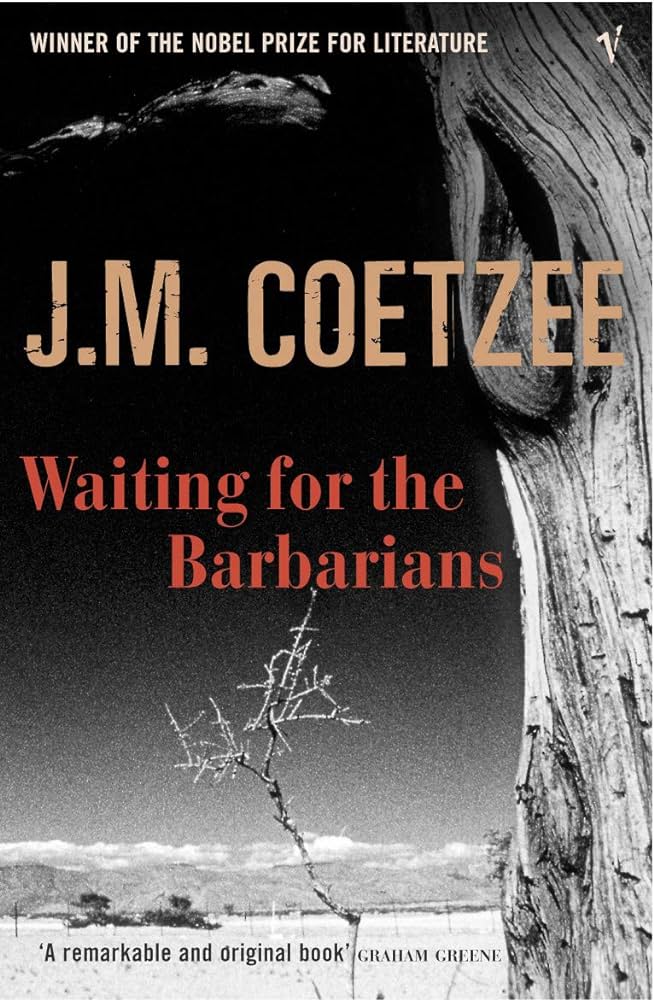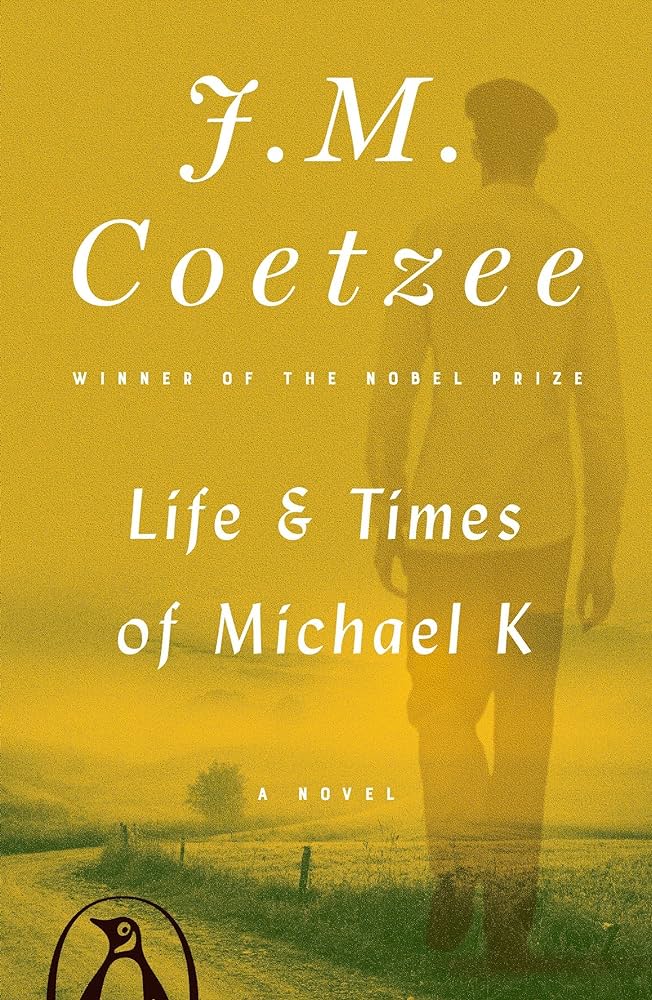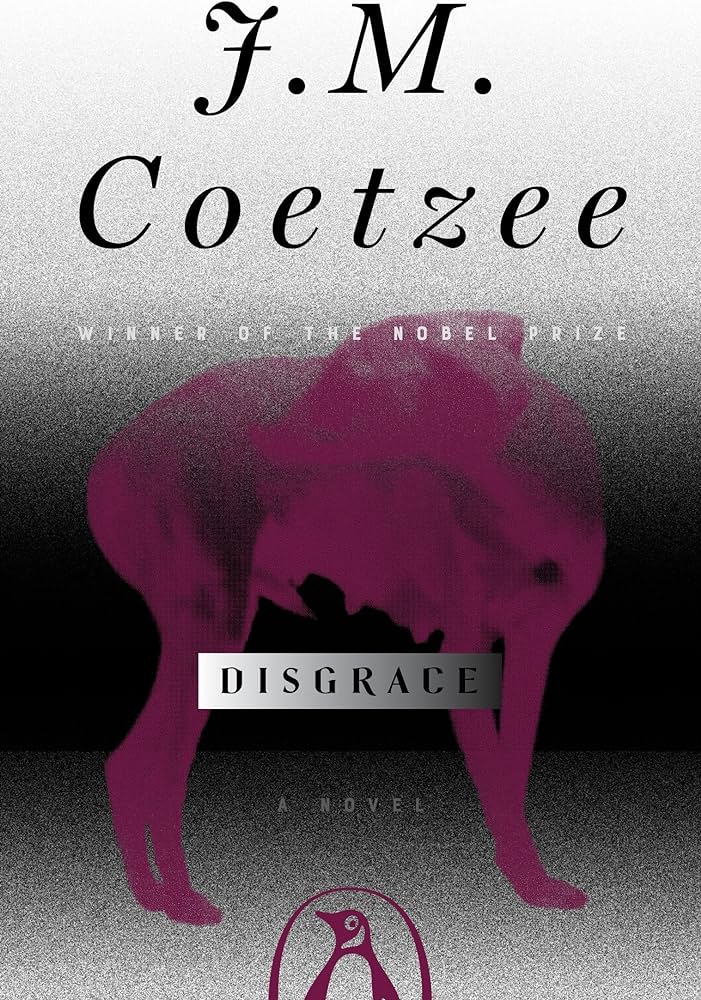Explore the three best works of J.M. Coetzee, characterized by stark minimalism and poignant prose, as the author dives into them in the article below!
John Maxwell Coetzee, or J.M. Coetzee, is a Nobel Prize-winning author from South Africa known for his politically charged and thought-provoking literary works. His writing is characterized by stark minimalism paired with unflinching examinations of the modern human condition, with his stories often set against the backdrop of post-apartheid South Africa. Coetzee has always taken a keen interest in literature and linguistics, teaching as a Professor in Cape Town alongside his writing career. Throughout his life, Coetzee has continued to produce challenging works that get his readers to confront the most uncomfortable truths about humanity and modern civilization.
Despite his first two novels – Dusklands (1974) and In the Heart of the Country (1977) – garnering critical attention, it was with Waiting for the Barbarians (1980) that Coetzee first gained international acclaim. Later on, J.M. Coetzee went on to win the Booker Prize twice for Life & Times of Michael K (1983) and Disgrace (1999), followed by the Nobel Prize in 2003 for his “well-crafted composition, pregnant dialogue and analytical brilliance”. In this article, we discuss the best works of J.M. Coetzee to introduce the reader to his richly poignant and often heartbreaking body of literature.
Waiting for the Barbarians

Waiting for the Barbarians is the first novel written by J.M. Coetzee and is a powerful and thought-provoking exploration of themes of power, colonialism, and the moral complexities of human behavior. Published in 1980, the story is set at the frontiers of an unnamed power referred to as “The Empire”, where an elderly magistrate resides in a small settlement. The plot unfolds through the magistrate’s perspective, who initially seems just a detached observer of the empire’s policies of expansion. As the narrative progresses, however, the magistrate is increasingly caught up in the ethical dilemmas generated by the empire’s treatment of the so-called “barbarians” – the empire’s term for the indigenous people.
There’s a sense of foreboding at the novel’s outset, with the magistrate anticipating the impending arrival of the barbarians. A detachment of the empire’s forces, led by Colonel Joll, arrives at the settlement. Tension builds as Joll’s cruel interrogation methods and the brutality he inflicts upon the barbarians lead the magistrate to a moral crisis, and he begins questioning the empire’s methods. He soon takes a stand against the imperial regime as he becomes increasingly sympathetic to the plight of the indigenous people, resulting in his persecution. Coetzee skillfully explores the complexities of power dynamics, moral ambiguity, and the consequences of blind obedience to authority. The book confronts the reader with the realities of civilizational strife and the dehumanizing effects of imperialism.
The title Waiting for the Barbarians hints at the sense of fear and anticipation surrounding the unknown, underscoring the psychic impact of living in a state of perpetual strife. Through a nuanced exploration of the motivations and conflicts of the characters, J.M. Coetzee delves into their psychological and emotional states of being. His style is spare and evocative, mirroring the harsh landscape of the frontier by creating a stark and lonely atmosphere. The novel is sprinkled with allegories that draw parallels to various historical and contemporary instances of colonialism and oppression, which makes it a timeless exploration of human nature and societal structures. A profound and thought-provoking tale inviting readers to grapple with questions of morality, power, and the consequences of unchecked authority, Waiting for the Barbarians is Coetzee’s exploration of the harsh impact of colonialism on the human psyche.
Life & Times of Michael K

First published in 1983, Coetzee’s Life & Times of Michael K looks at survival, identity, and the human spirit in the face of adversity. It is a poignant and deeply moving novel and unfolds against the backdrop of a politically tumultuous South Africa. The narrative bifurcates into two main timelines, offering a glimpse into Michael’s present struggles and the circumstances that shaped his past. The narrative begins with a physically and mentally challenged man, Michael K, living in Cape Town, embroiled in civil conflict and under martial law. With the war intensifying, Michael flees the city with his mother, who has fallen sick. He builds a makeshift rickshaw and sets off for Prince Albert, the small town where his mother grew up.
Alternating between Michael’s present and past through flashbacks, readers are taken through Michael’s birth, his poverty-stricken childhood and the hardships faced by his mother. All kinds of challenges beset their journey across a treacherous landscape, from harsh weather and scarcity of resources to the constant threat of violence from rebels and the government. Although his mother dies tragically, succumbing to her illness, Michael continues undeterred. Eventually, at Prince Alberta, he finds some solace and a sense of purpose in cultivating a small garden. The garden becomes a symbol of resilience and a source of strength for Michael, representing his will to carve out a sense of normalcy amidst the chaos.
Michael is eventually captured and detained by government troops and suffers the bureaucratic machinery of a state that’s in disarray. The experiences he undergoes in captivity further delineate the dehumanizing effects of war on the individual, even though his stoicism and unwavering commitment to his principles starkly contrast the chaos surrounding him. Aside from the primary themes, Coetzee also deftly uses his protagonist’s experiences with his mother to delve into the complexities of caregiving and the strained relationships between individuals and institutions. Life & Times of Michael K won the Booker Prize in 1983, solidifying Coetzee’s international reputation as a voice championing the value of human lives caught between power structures of race and the empire.
Disgrace

The novel that won J. M. Coetzee his second Booker Prize in 1999, Disgrace features a complex and bleak plotline unfolding against the backdrop of post-apartheid South Africa, exploring themes of power, identity, and redemption. David Lurie, the protagonist, is a middle-aged English professor in Cape Town whose life takes a dramatic turn as he gets entangled in a series of events forcing him to confront his prejudices and the harsh realities of his society. Lurie is a man of intellectual pursuits and desires, living a detached and hedonistic life punctuated by risqué sexual affairs. His placid life is disrupted when he has an affair with Melanie, one of his students, and is investigated by the university.
Facing disciplinary action, the unrepentant Lurie refuses to apologize or defend himself and is forced to resign. The “disgraced” Lurie retreats to the Eastern Cape to live with his daughter Lucy on her farm, seeking a simpler idyllic life. One day, however, this life is rudely interrupted when the father and daughter face a brutal assault from the local men, leaving Lucy physically and emotionally scarred. This event becomes a focal point for the novel, highlighting the racial and gender tensions in post-apartheid South Africa. As Lurie grapples with his sense of guilt and responsibility, the narrative takes a deeper turn. He tries to understand and connect with his daughter but inevitably becomes entangled in the complicated dynamics of race, power, and restitution.
Coetzee’s book also explores questions of animal rights as Lurie starts working with Bev Shaw, Lucy’s friend, who runs an animal shelter where she euthanizes animals. As the story progresses, Lurie undergoes a profound transformation. Once arrogant and detached, the former professor becomes more attuned to and at peace with the world around him. His relationship with his daughter evolves into a fragile but genuine connection, despite being marked by moments of tension and misunderstanding. Coetzee raises difficult questions about the nature of forgiveness, accountability, and the possibility of redemption in a world scarred by inequality and injustice and, ultimately, Disgrace offers no easy answers. Its conclusion is decidedly tonally ambiguous, challenging readers to reflect on the complexities of human nature and societal transformation.
Why We Should Read J.M. Coetzee
Reading J.M. Coetzee is an intellectual journey that delves into the depths of the human psyche, societal structures, and the moral intricacies that shape modern existence. Coetzee’s body of work – which spans novels, essays, and literary criticism – offers a unique and compelling exploration of the human condition. His narratives are characterized by a precise and incisive prose style that invites readers to engage with complex themes with clarity and depth. With language that’s both elegant and accessible, his works have the power to move and provoke thought across a wide range of readership. Coetzee’s exploration of post-colonial and post-apartheid South Africa provides a lens through which readers can grasp the complexities of societal transformation, whose façade of progress often obscures unimaginable horrors. His thought-provoking essays, like those in “The Lives of Animals,” engage with contemporary debates on ethics and the responsibility of individuals in a globalized world. Reading J. M. Coetzee, in essence, invites us to confront some of the most profound and simultaneously most uncomfortable truths about the world we inhabit.

